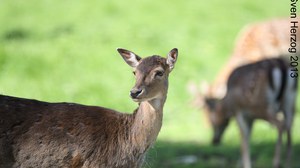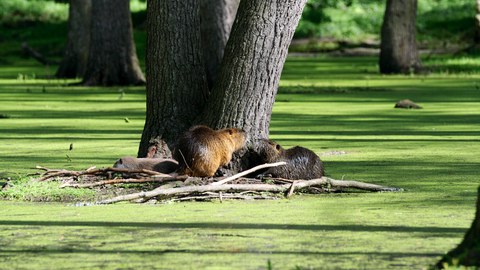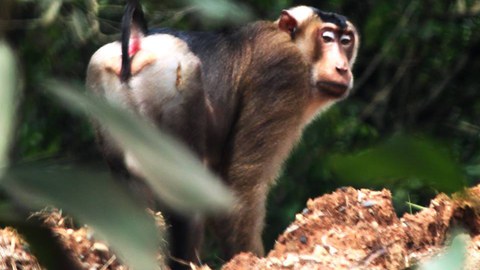The Chair introduces itself
Today, sustainable protection and use of wildlife as a natural resource constitute a topic of high importance to society as well as the human-animal relationship. Among ever-changing political and social basic conditions it is imperative to solve the interrelated problems.
The Chair of Wildlife Ecology and Management sees itself as a service organisation in the fields of wildlife biology, wildlife ecology, wildlife management and environmental communication and conservation.
Vision and Mission
Today, sustainable protection and use of wildlife as a natural resource constitute a topic of high importance to society as well as the human-animal relationship. Among ever-changing political and social basic conditions it is imperative to solve the interrelated problems.
The Chair of Wildlife Ecology and Management sees itself as a service organisation in the fields of wildlife biology, wildlife ecology, wildlife management and environmental communication and conservation.
Our core competencies lie in the biological-ecological basic research and derived from it immediately - an attractive teaching for students from home country and abroad. In addition, we also support specific projects in the field of natural resource management or environmental education from conception through applied research and development, up to implementation.
Fields of work:
Biology and ecology of wildlife
with special respect to genetics, evolutionary biology and socio-biology
Conservation biology and biodiversity
Conservation genetics, conservation and sustainable use of wildlife in their habitats, management strategies
Wildlife and habitat
On an ecophysiological and eco-ethological basis, we deal with the question: how wildlife can live, species- and ecosystem-appropriately, in anthropogenically altered and used habitats.
Wildlife and human
Looking back at a million-year long coevolution between man and wildlife, we try to analyse the specific problems of living with wildlife at different time periods and to gain knowledge, especially for solving today’s problems with wildlife. This leads to specific concepts for wildlife management in different regions of the world, where the dealings with wild ruminants in forest ecosystems inheres in a special importance. Another aspect of our work relates to environmental communication, including valorisation of nature.
Zoonoses
Diseases that occur in humans and wildlife alike are investigated, especially in view of the importance of wildlife as reservoirs and vectors under current and further changing climatic conditions.
Excellency
Our work is focused on a culture of excellence. This can be assigned to the following dimensions:
- Professionalism: We fulfil our duties professionally. If, on subdivisions of our field of work, our own expertise is stretched to our limits we will cooperate with internationally renowned experts in the particular subdivision.
- Cooperation: The cooperation is for us on the one hand an important requirement to ensure a consistently high level of our services on the different subdivisions of our two disciplines. In addition, collaborations at national and international level are on the other hand always focal points for innovative and sometimes unconventional approaches in teaching and research, as well as in practical wildlife management.
- Reliability: We regularly monitor the process of our services. Commitments and promises are kept. Our research is based on the principles of good scientific practice.
- Customer Orientation: Primarily we consider our students, but also our external and internal partners in research, and the funding agencies as customers. We accept and respect the wishes of our customers and our sponsors regularly. We offer our students a wide range of courses that meets their needs. Our external partners offer a full range of services in the areas of ecosystem management, wildlife management and environmental communication. If professional expertise is not available in our department, our clients could count on a network of competent co-operation partners.
- Employee orientation: Our employees are critical to our success. They work in small project teams with a high degree of autonomy. They are involved in all major decisions. Their knowledge and expertise will be regularly expanded and developed.
- Benchmarking: Our scale of performance is based on institutions that are in their field globally accepted as a leader. In a process of continuous verification of the quality of our services through the comparison with the best is the constant improvement of both internal processes as well as the results of our work.





